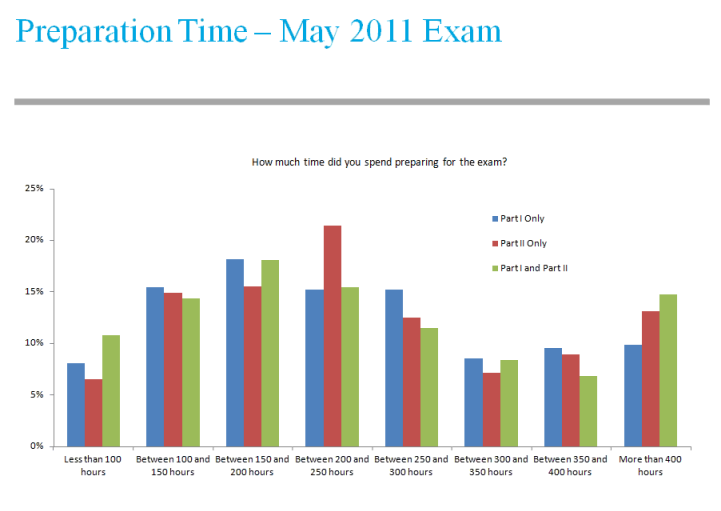I plan to attempt FRM level 1 in May.
I just looked at some BT and Scweser notes from a friend and I must say, I was overwhelmed by the sheer number of concepts, theories and formulas in this curriculum.
I really dont beleive that its possible to prepare for this exam in the 300-400 hours normally suggested. This exam IMO would require a year and seems impossible without attending regular classes.
Just to let you know, I have a reasonably strong math background and have just cleared ACCA adv fin mgmt exam by self study. Im not making any comparison just saying Im not totally clueless about this field.
So how is it possible really, to study, understand several dozen theories, concepts and mathematical formulas in such a short period, and learn to apply them? Unless its only required to learn a few important ones. Or unless its only required to understand the 'surface' w/o going in depth.
I just looked at some BT and Scweser notes from a friend and I must say, I was overwhelmed by the sheer number of concepts, theories and formulas in this curriculum.
I really dont beleive that its possible to prepare for this exam in the 300-400 hours normally suggested. This exam IMO would require a year and seems impossible without attending regular classes.
Just to let you know, I have a reasonably strong math background and have just cleared ACCA adv fin mgmt exam by self study. Im not making any comparison just saying Im not totally clueless about this field.
So how is it possible really, to study, understand several dozen theories, concepts and mathematical formulas in such a short period, and learn to apply them? Unless its only required to learn a few important ones. Or unless its only required to understand the 'surface' w/o going in depth.

